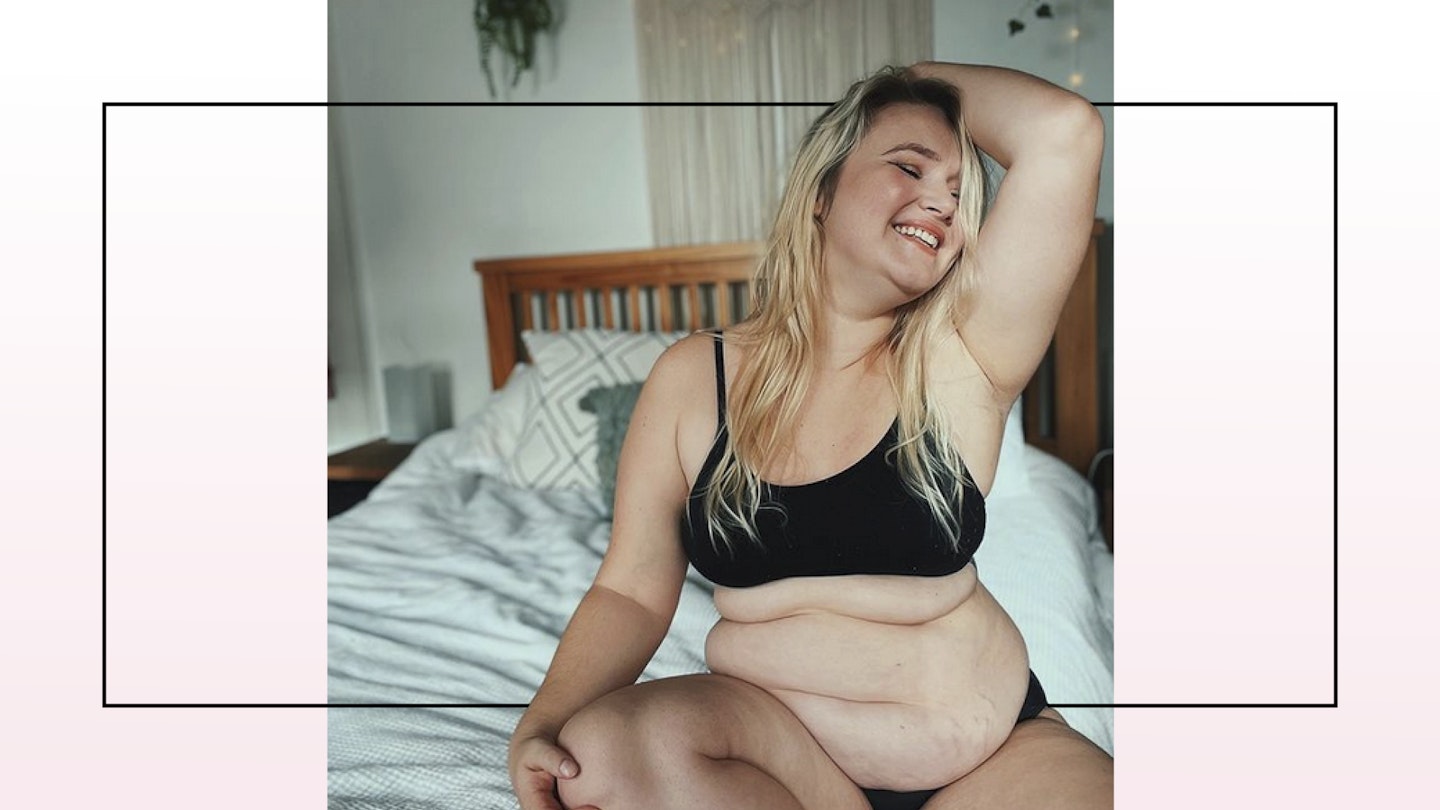In the days after I gave birth, I couldn’t stop staring at my body. I was fascinated by the way it moved, the things it had learned to do, the textures it now had. The way my stomach would spill down when I leaned into the moses basket to pick up my son. My movements slower, for fear of impacting my stitches. The clenched jaw to get me through another painful nursing session. I’m not alone here- so why did I feel like I was?
When it comes to seeing adverts for the products that mothers are buying, the images that go with it are always the same. She’s slim, she’s smiling, she’s well dressed (often in pale colours), her skin is glowing, the house is pristine. The newborn is sleeping soundly, perfect. Now, I’m not sure about you but my pregnancy glow was replaced with a pretty grey façade almost the second my son came out, and I certainly didn’t go near any white trousers. I lived in a constant cycle of choosing between clean clothes, clean house, and clean hair- and I was one of the lucky ones who actually felt pretty good overall! But motherhood (and the fourth trimester in particular) is messy and unpredictable- and it’s ok if this is your reality too.
We like to think we’re smarter than advertising, that we won’t be duped. We KNOW they’re selling a product, and with it an ideal. A perfect image, a smile, a colour palette- a stark contrast to our messy lives. But even though we know this, the power of ads and the relentlessness with which we see them, is that they take hold without us realising. So we might not end up buying the product, but we now believe the scenario to be exactly what we want, and we start subconsciously modelling our lives around something that doesn’t even exist. And when we fall short, we think we’re failing.
It's why representation is so important. It’s isolating when you don’t see yourself in the media- and it’s euphoric when you do. It validates your existence, whether you’re seeing a brown skinned Little Mermaid, or a same sex couple with a happy baby in their arms. We’ve come a long way, and every step is in a good direction. But we aren’t done.
Wouldn’t it be something to see an advert for a breast pump, where the mother is yawning, hair dishevelled, munching a biscuit at 4am, or scrolling Instagram, lit by her phone? Or a highchair where the child simply will not eat, covered in the lovingly prepared pureed spinach, spoon midway through the air. Or even that classic moses basket shot, except this time, gravity comes into full effect and we see the tummy that hanging down right next to the baby it used to hold. Advertising is supposed to be aspirational, we want to be these mothers that we see. But the fact is, the world isn’t set up to help mums achieve this for the most part. The average mum is going to have a very different existence, and she’ll think she’s alone in it, when the reality is she’s in very good company. Moments don’t have to be perfect to sell products- they can just ‘be’.
Social media has seen a huge shift towards portraying ‘honest and real motherhood’ (hashtags like motherhoodintheraw have millions of followers) and we know that it’s what consumers want. It’s been great for starting conversations about maternal mental health, positive postpartum body image, and finding your tribe. So how long before major mother & baby brands follow suit, and create campaigns that reflect what every day motherhood is really like, instead of cherry picking just the best days. Real families, instead of a newborn baby placed next to a model, genuine pregnant women of all shapes, sizes, and gestations instead of fake, perfect second trimester bumps to sell maternity jeans, true homes and people and lives. Whenever I see these sorts of campaigns (because they do exist!), they’re rarely selling products- but the response is always fantastic. It’s time for brands to put their money where their mouth is, and start giving us honesty, and doing their bit to help us. And not by selling us their miracle product because we absolutely need it- but by letting us know that they see us, all the sides of us, and they’re here to help.
